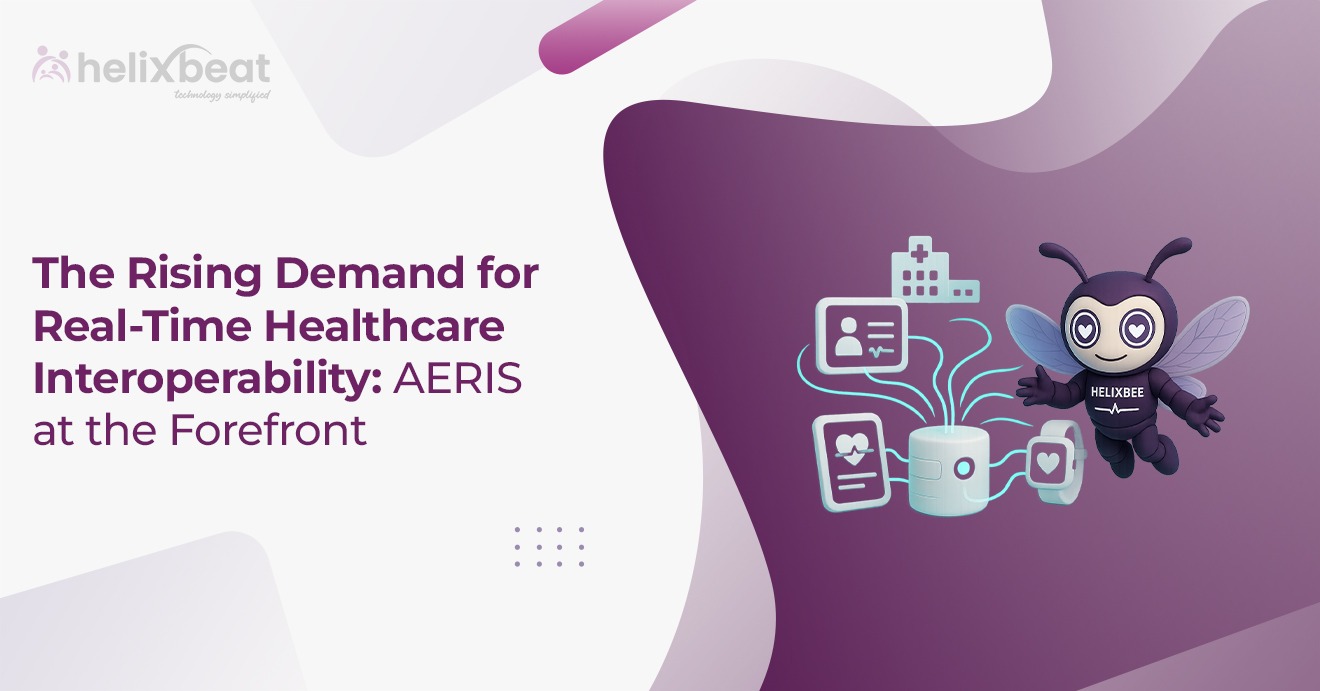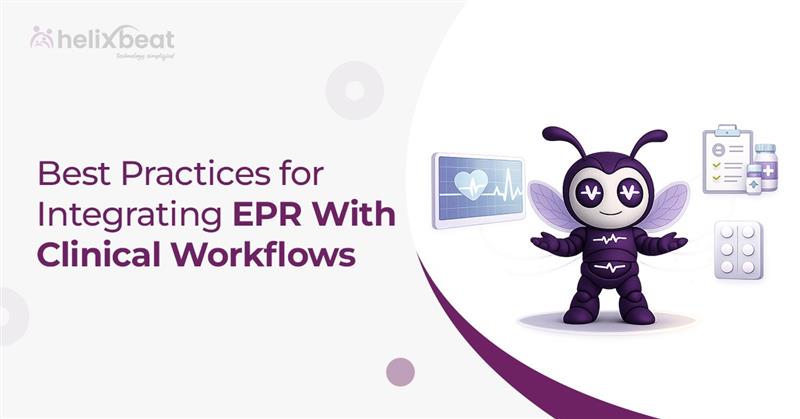In modern healthcare, connecting all the different systems, devices, and apps is more important than ever. Today, being able to share, understand, and use data smoothly across platforms is necessary. This change highlights why a healthcare interoperability platform like AERIS is so critical.
Let’s look at what’s behind this demand and how AERIS is reshaping the industry.
Table of Contents
Understanding Healthcare Interoperability
At its heart, healthcare interoperability refers to the capacity of different information systems, devices, and applications to access, exchange, integrate, and use data in a coordinated manner.
An interoperability platform like AERIS makes this happen. By breaking down data silos, AERIS promotes a more connected and patient-centered ecosystem.

The Drivers Behind the Boom
Several converging factors have ignited the rising demand for real-time healthcare interoperability.
Let’s start with the huge increase in digital health data. With over 90% of U.S. hospitals now using EHRs, the healthcare industry generates terabytes of information every day. In addition, patients contribute through fitness trackers, smartwatches, and mobile health apps that monitor everything from heart rates to sleep patterns. Without a healthcare interoperability platform to connect these dots in real time, that data remains fragmented.
Government regulations play a key role as well. In the United States, initiatives like the 21st Century Cures Act and the Trusted Exchange Framework and Common Agreement (TEFCA) mandate better data sharing among providers. For example, TEFCA establishes a nationwide network for secure health information exchange, emphasizing real-time capabilities to support coordinated care.
Similar pushes exist globally, such as the European Health Data Space, which aims to give citizens control over their health data while facilitating cross-border exchanges. These policies stem from a recognition that delayed data can compromise patient safety, especially in emergencies or chronic disease management.
Besides, technological advancements further accelerate this demand. Artificial intelligence (AI) and machine learning thrive on fresh data, predicting outcomes like disease progression or readmission risks. Meanwhile, cloud-based solutions, integrated into modern healthcare interoperability platforms, handle all this information in real-time.
AERIS: The Key to Seamless Healthcare Data Exchange
AERIS by Helixbeat is a healthcare interoperability platform designed to facilitate seamless data exchange across various healthcare systems. Built on the FHIR (Fast Healthcare Interoperability Resources) standard, AERIS enables secure and standardized communication between electronic health records (EHRs), laboratory information systems, imaging platforms, and more.
Key Features of AERIS
- FHIR-Based Integration: AERIS uses the HL7 FHIR standard, so it can work with a wide range of healthcare systems and share data in a standardized way.
- Real-Time Data Exchange: With this platform, healthcare providers can instantly access current patient information. This helps them make faster decisions when it matters most.
- Scalability and Flexibility: AERIS is designed to scale with healthcare organizations of all sizes, from small clinics to large hospital networks, adapting to their specific interoperability needs.
- Enhanced Security and Compliance: The platform adheres to stringent security protocols and complies with healthcare regulations, such as HIPAA, to protect patient data and maintain confidentiality.
- User-Friendly Interface: AERIS offers an intuitive interface that simplifies the integration process and enhances the user experience for healthcare professionals.
The Impact of Real-Time Interoperability on Healthcare Delivery
Implementing real-time interoperability through platforms like AERIS brings significant improvements in healthcare delivery:
- Improved Care Coordination: By letting providers seamlessly share data, AERIS helps them work together more effectively, leading to more cohesive and complete patient care.
- Better Patient Outcomes: When clinicians can get a complete, current picture of a patient’s health, they make smarter decisions faster. This reduces errors and leads to better results for the patient.
- Operational Efficiency: Real-time data sharing reduces the need for redundant tests and procedures, streamlining workflows and reducing healthcare costs.
- Patient Empowerment: With interoperable systems, patients can have more control over their health data, leading to increased engagement and satisfaction with their care.
The Future of Healthcare Interoperability
The future looks bright, with trends pointing to even deeper integration. AI will evolve to provide predictive real-time insights, while global standards will harmonize further, making cross-border care routine. Platforms like AERIS are at the forefront of this evolution, driving innovation and setting new standards for data exchange in healthcare.
In conclusion, the rising demand for real-time healthcare interoperability signals a paradigm shift toward connected, efficient, and patient-focused systems. By adopting a healthcare interoperability platform like AERIS, providers can harness this wave and deliver care that’s not just reactive but truly transformative.
FAQs
1. How can a healthcare interoperability platform benefit hospitals and healthcare providers?
Hospitals and healthcare providers can leverage a healthcare interoperability platform to access complete and up-to-date patient information, reducing errors, improving collaboration, and enhancing overall operational efficiency.
2. Can a healthcare interoperability platform integrate with existing healthcare systems?
Yes, AERIS integrates with existing systems like EHRs, laboratory information systems, and imaging platforms, allowing seamless communication across different healthcare technologies.
3. How does a healthcare interoperability platform impact patient engagement?
AERIS supports patient engagement by making their health data more accessible and allowing them to actively participate in their care, leading to better health outcomes and satisfaction.
4. What are the benefits of adopting a healthcare interoperability platform for healthcare organizations?
Adopting AERIS improves care coordination, reduces administrative costs, enhances data accuracy, and fosters better decision-making by providing timely access to comprehensive patient information.













